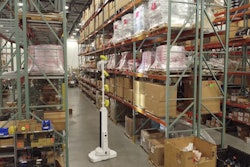
One could argue that data is the new currency that enables critical decision making in today's business landscape. However, in our complex systems, data of all types must flow through an intricate data supply chain, making it crucial to implement proper protection at every step in the journey to safeguard against theft and corruption.
The data supply chain refers to the comprehensive process through which data flows within an organization. It encompasses the collection, storage, processing, analysis, and distribution of data from its initial generation or acquisition to its final delivery to end users. The data supply chain involves multiple stages and platforms, including databases, data lakes, processing systems, and analytics tools. Each stage presents unique challenges and vulnerabilities, making it essential to implement robust security measures to ensure the data's confidentiality, integrity, and availability throughout its lifecycle.
Data protection in the data supply chain is critically important for several key reasons. Firstly, it ensures the confidentiality of sensitive information, safeguarding it from unauthorized access and potential breaches. This is crucial for maintaining the trust of customers, partners, and stakeholders who rely on the organization to handle their data responsibly. Protecting data also preserves its integrity, ensuring that it remains accurate, consistent, and reliable throughout its journey. This is essential for making informed business decisions and delivering high-quality products or services.
Additionally, data protection helps organizations comply with various data protection regulations and legal requirements, such as GDPR, HIPAA, and CCPA (among others). Non-compliance can result in significant fines and legal repercussions, as well as damage to the organization's reputation. Furthermore, the threat landscape is constantly evolving, with cyberattacks becoming more sophisticated and frequent. Effective data protection measures, such as access controls, encryption and regular security assessments, are vital in defending against these threats.
The data supply chain faces numerous threats that can compromise its security and integrity. These threats include unauthorized access, where malicious actors gain entry to sensitive data at various stages of their journey. Data breaches and theft can occur during transmission, storage, or processing, exposing confidential information to exploitation. Additionally, data corruption can result from cyberattacks or system malfunctions, leading to inaccurate or unreliable data. Insider threats, such as employees with malicious intent or negligence, pose significant risks as well. The increasing sophistication of cyberattacks further amplifies these threats. Therefore, protecting the data supply chain requires comprehensive security measures to defend against these diverse and evolving risks.
It’s critically important to establish a strong data governance framework that sets rules and policies about data handling at every stage. This enables consistency and clear guidance around data integrity, who holds what responsibilities, and how information is secured across the data supply chain and handled in compliance with laws and regulations, among other things. A strong data governance framework is a preventative measure that can reduce the chance of a data breach or theft. Maintain a clear inventory of data and its lineage is critical to a strong data governance framework.
One of the most basic ways to protect data in the data supply chain is through effective identity and access management principles and best practices. Done right, this can reduce the likelihood of unauthorized access, ensuring that only authorized individuals can view or use potentially sensitive data, thus reducing the risk of data breaches by malicious actors. It also protects the confidentiality of data, ensuring that sensitive information remains accessible only to those with a legitimate need to access it. Furthermore, proper access controls and audit logs support data integrity by mitigating the risk of unauthorized modifications, which preserves data accuracy and trustworthiness.
A few simple examples of potential identity management issues include reusing existing groups and/or accounts. When done correctly, a data supply chain utilizes individualized components, designed specifically for a particular purpose or for a group of accounts or users. Trying to shortcut timelines by using an existing security group instead of taking the time to create a separate one often leads to some group members gaining access to something they should not have and may not know about. Compromised accounts then have access to more than they should, and even worse, if it was an unknown avenue of access. The same principle applies to repurposing an account for something other than initially intended. This might expose more data, or it might cause unintended disruption if the account is properly deactivated because the original application is ended, but something else suddenly fails because it used the same credentials instead of its own purpose-built set of credentials.
Encryption in the data supply chain involves converting data into a secure format that can only be accessed or read by individuals or systems with the appropriate decryption key. This process is essential for protecting information as it moves through various stages, including collection, storage, processing, and distribution. By encrypting data both in transit and at rest, organizations can ensure its confidentiality and integrity, preventing unauthorized access and tampering. Encryption helps meet regulatory compliance requirements, mitigates the impact of potential data breaches, and builds trust with customers and partners by demonstrating a commitment to robust data security practices.
Monitoring for malicious or anomalous activity in the data supply chain is essential for early threat detection and prevention of data breaches. Effective monitoring supports rapid incident response, mitigating the impact of security incidents and reducing recovery times.
Protecting data in the supply chain also mitigates the risk of data loss or corruption, which can have severe operational and financial impacts. It ensures business continuity by preventing disruptions that can arise from data breaches or system failures. Moreover, as technologies like generative AI and LLMs become more prevalent, the need to safeguard the vast amounts of data they require intensifies. Ensuring data protection in the supply chain is therefore fundamental to maintaining operational efficiency, regulatory compliance, and the overall security of the organization.



















